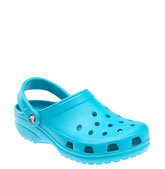The world of social media and social networking likes nothing better than an underdog. No, not to rise to its defence, but to gang up against it.
One of the most successful special interest groups on Facebook is called “I Dont care How Comfortable Crocs Are, You Look Like A Dumbass”. It has no less than 690 000 members at the time of writing, far surpassing the total South African network of 460 000 members. And probably the most successful South African special interest group in Facebook is the “I fucking hate the animated meerkat from Vodacom” group, currently standing at 18 000 members.

The names alone are a clarion call to hip and fashionable among us. Membership confers upon us the mantle of superior taste. The groups also represent an assumed conventional wisdom about what is cool and what is not. And their subtext is that anyone who does not buy into this conventional wisdom is by definition uncool.
Blogdom (oh alright, the blogosphere) presents us with a similar enforced conventional wisdom. It’s a given across the blogosphere that Steve Jobs and anything Apple is to be worshipped, and that Bill Gates and anything Microsoft should be despised. Indeed, the blogosphere froths at the virtual mouth at any criticism of the iPhone.
In South Africa, Ronald Suresh Roberts is fast becoming the blogosphere’s equivalent of the meerkat on Facebook. By that I don’t mean he is a ludicrous animated caricature with little taste and no ankles. At least I don’t think he is.
It just seems that, every time the unanimated Roberts puts his virtual pen to blog paper, he is assailed by those of greater taste and superior sense of what is cool.
The problem is that they have precisely the same impact as the anti-meerkat and anti-Crocs groups on Facebook,and their chearleaders in the media.
They mobilise support around the supposed underdog, which is usually no underdog but appears so because of being ganged-up against. There are now numerous pro-meerkat groups and pro-Crocs groups on Facebook. Granted, they don’t have the same support, but then supporting this kind of underdog has far less gang appeal than dissing it.
The best way to deal with the likes of animated meerkats, plastic shoes and unanimated intellectual bloggers is to ignore them. By engaging with them, energy flows into their brands, because it means that people care enough about them to position themselves in relation to these brands. In turn, that means these brands become part of the context of those who have positioned themselves thus.
Do I love the meerkat? Hardly. But the last thing I want is to be defined by my dislike of the easily dislikeable.


